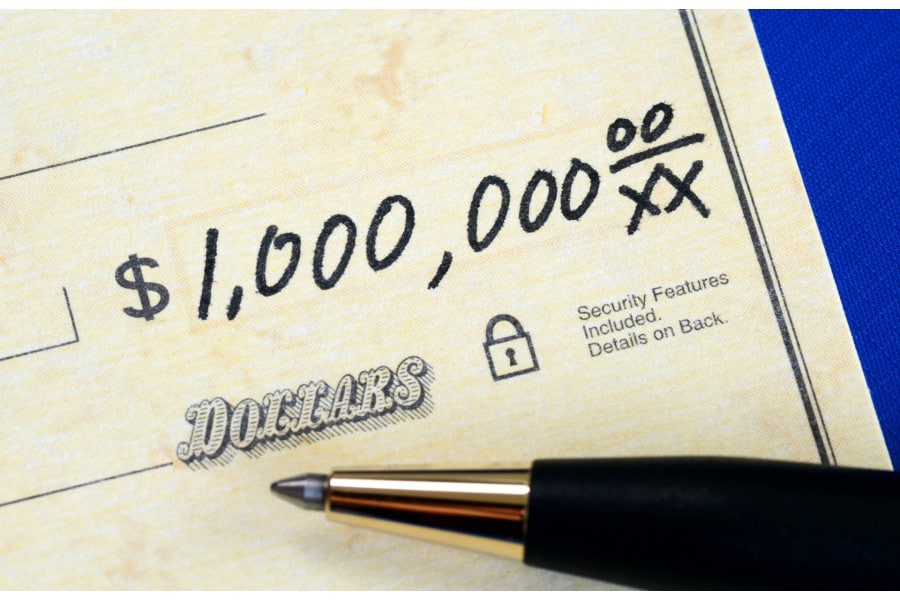I hate asking people for money.
It’s uncomfortable. It’s unsettling and it’s nerve-wracking. Maybe those feelings are embedded in me from attending Catholic school for nine years and having to sell $1.00 candy bars, door-to-door to the neighbors… as well as Christmas wrapping paper and Easter candy. How many times did I gulp rejection from mean old Mr. Johnson at the top of the street? Probably scarred me for life.
For 38 years I’ve purposely avoided any professional endeavor that had even a whisper of asking people to surrender to me their hard-earned cash. Until June 2020. I accepted a position that nowhere in the job description hinted at fundraising. Not a mention in two separate interviews. Until my first day on the job, when I was told that because of my title, I was considered the school’s major gifts officer. Because of that honorary designation, I’d be responsible for stewarding a Top 25 list of donors. That’s what I get for accepting a job at a Catholic high school. Maybe my reward will be great in heaven.
Anyway, I was paralyzed. I mean, selling $1.00 chocolate bars to mostly willing neighbors wasn’t the worst thing I’d ever had to do. NOW, I had to talk to people about giving me thousands, tens of thousands, hundreds of thousands, maybe millions of dollars.
My consultant calmed my anxiety by explaining that asking prospective donors for money wasn’t as gut-wrenching as I was agonizing it would be. He recommended that I only had to craft some quality stories about the donor’s passions and vision and the money part would take care of itself. Sounded too easy, but I reminded myself, I AM a Wizard.
How do you develop the kinds of quality stories that influence people to surrender their hard-earned cash for your product, service, or cause? There’s a couple of philanthropic axioms that have universal application.
First, it’s never about you, or your organization or your cause.
It’s always about the donor. Second, you need to make a meaningful connection between your prospect and your cause or organization so that you create a win-win. You’ve got to be able to help them envision how their generosity will have a positive impact on others. Finally, I never make “the ask” on the first date. Maybe not even on the second face-to-face. Why? Because I know in my gut when that other human is ready for that important step. The relationship-building will bear much more fruit over time than will the used car salesman approach (“Give me your money today!”).
With some trepidation I booked an appointment to meet with the school’s most significant benefactor, who is also an alum. I did my homework. I did my research. I talked to some people who knew the individual and his wife. I talked to some people who knew about his company. I created some stories, and I went to see this gentleman.
He opened the conversation with some salty language, and I saw that as a test. After an hour of conversation, including my storytelling, I left… without “the ask.” I continued to build the relationship. At the end of the fiscal year, accounting for total gifts from he and his wife, and from his business totaled six figures, and it was a noticeable increase from the previous year. Maybe this storytelling thing had some merit.
My second target was a completely different challenge. She was a disgruntled former donor who hadn’t given a gift to the school in six years. She wasn’t happy about how her and her late husband’s last gift was handled. I called her on the phone… and I listened – to her complaints, to her passions and to her sadness at the two-year anniversary of her beloved husband’s passing. I sent her a handwritten note. After some time, I sent her a second short note with some photographs demonstrating how well her previous gift had been utilized. She called me and she said, “I’d like you to come to the house for a visit.” My colleague got a look on his face as if he’d seen the seven wonders of the world all at once. “No one has ever been invited to her house.”
My research yielded no tangible results. So, I went for the visit… and I listened. I did tell some generic stories, but I know that she liked the fact that I listened. She asked me to call her after Easter. I did and she invited me back for a second visit. This time, I was prepared with some stories that were meaningful to her. At the end of the conversation, she got up, sauntered to her kitchen, took out her checkbook and wrote a five-figure check for the school. I’ve continued to build our relationship. A couple of months ago, she asked me to come visit. She told me that she’d like to double what she donated last year. Again, I was prepared. Now she’s considering a six-figure endowment for one of our academic departments.
Finally, I was able to meet face-to-face for the first time with the school’s second-most generous donor. COVID squashed previous meeting attempts. I did my research, and I was prepared. We chatted for 90 minutes. As I sensed the conversation was coming to a conclusion, I explained to the donor that I wasn’t going to ask her for anything more than her consideration about several upcoming initiatives in which she might be interested.
She said to me, “when I came in today, I was considering donating $500,000. But after listening to your stories, I think I might make it one million.”
Are you crafting and delivering million-dollar stories?
- He Didn’t Have to Do It - December 22, 2025
- We Got a Freebie - December 2, 2025
- Do You Keep Your Promises? - November 20, 2025

